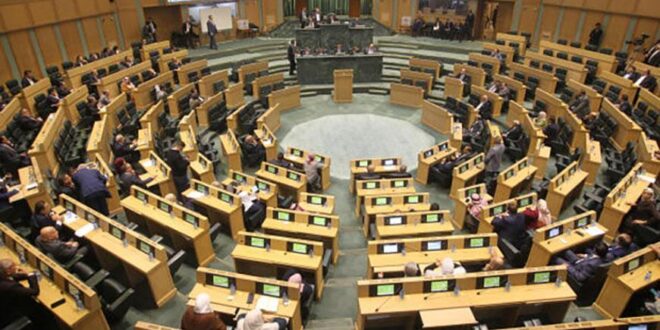Eng. Saleem Al-Batayneh
Lack of political maturity, awareness, Don Quixote leaderships, faction struggles, and the inverted pyramid phenomenon will lead to the disintegration of many emerging political parties in Jordan.
We know that democratic priority causes a partisan presence on the political scene, but unfortunately the current Jordanian model alienates those who wish to work in politics.
Since issuing the Political Parties Law in 1992, according to which hundreds of parties have proliferated to the point of fluidity and absurdity, and until this time, these partisan currents are trying to secure a foothold in political and parliamentary life despite their weak presence and the excessive thoughtfulness towards them by Jordanians who are unconvinced of its political and economic programs as most of them are fragile and weak and far from the issues of the street and the people. They are weak from exercising any societal role because of the incompetence of the personalities who lead some of these parties because of their lack of understanding and deficiency of political awareness.
The vast majority of those old and emerging new parties are politically immature and incapable of framing and structuring society formed according to goals that have nothing to do with political practice. Those utilitarian parties based on love and longing for power! Also listed are profit-and-loss accounts, positioning, influence, and accessibility.
Many of these parties are not qualified to deal with a democratic climate, which will later lead to their disintegration and ruptures, resignations and conflicts of the wings within them at an sped up rate! The main reason here is the excessive leadership (Don Quixote), and the unbridled desire to appear and lead the scene in order to benefit from the political spoils if you can secure the personalities of these parties’ chairs.
Most emerging parties are similar in their ideas and organizational structure. Thus, there is no difference between them except for their names and the names of their founders. All of them do not represent a state project. Jordanians never believed in the feasibility of these parties as evidenced by their weak affiliation of the citizens with these parties whose slogans do not touch the ambitions and concerns of the people.
We have many questions on our minds: What do the Jordanian political parties want?
In order to answer that question, let me share with you an analytical study from a book issued by the Institute of Politics and Society months ago in cooperation with the King Abdullah II Fund, entitled (On the Threshold of Transformation), which was authored by researchers Muhammad Abu Rumman, Abdullah Al-Jabour and Wael Al-Khatib.
The book relied on a field study of the reality of the Jordanian political parties and 50 visits to they shed the headquarters of the parties on the formal and qualitative affiliation within these parties!
The book presented an analysis of the campaign of variables regarding the structural and leadership structure of the parties. The book directly focused that the real power of the party is not in the race towards preparing national figures within the party.
What I really liked about this book is the introduction and the historical narrative, and the advanced vision it contains, which came through five chapters in which the authors identified many challenges facing the upcoming party formation process. The most important thing that came within these five chapters is that most of the current political parties suffer from a structural weakness. Few parties have excessive efficiency while most parties suffer from the phenomenon of (inverted pyramid) that term that I borrowed and put at the forefront of my article above to denote the centralization of the party in leadership with a severe weakness in the party cadre, the absence of a social foundation, the challenge of internal concord, and the overcoming of divisions and personal considerations. The accretion of all parties within the capital, Amman, and the challenge of financing and the internal construction of the party are quite apparent.
The fourth chapter of the book monitors the state of media and political communication of the parties and their capabilities in traditional media.
Certainly, some of these new parties are witnessing a state of partisan teenaging in need of political education, and will try to search for adrift legitimacy. This is what we will witness in the coming months and before the next parliamentary elections.
I fear that a day will come when we will have mercy on the one- ma, one-vote system.
Things will end. Soon, we will enter the dark tunnel and listen to rumors. This is my reading of the next scene.
I must explain to the honorable reader what leadership (Don Quixote). Don Quixote came from a novel by the Spanish writer Miguel de Cervantes, who is famous for his novel (Don Quixote) which was written in 1605 and published in two parts in 1605 and 1615. A Syrian translator called Sayah Al Juhaim translated the novel from french into arabic. They have published this novel into many languages.
Former Jordanian Parliament Member
 Geostrategic Media Political Commentary, Analysis, Security, Defense
Geostrategic Media Political Commentary, Analysis, Security, Defense





